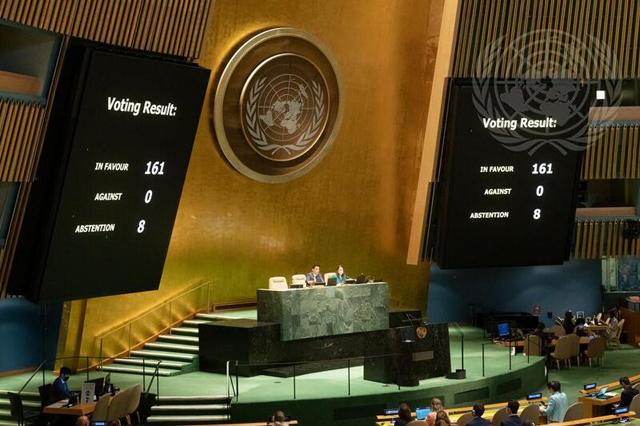You are here
UN declares ‘healthy and sustainable environment’ a human right
By Maria Weldali - Oct 09,2021 - Last updated at Oct 09,2021

The UN Human Rights Council recognised on Friday for the first time that a clean, healthy and sustainable environment is a human right (JT File Photo)
AMMAN — Following dedicated work by civil society institutions, the UN Human Rights Council recognised on Friday for the first time that a clean, healthy and sustainable environment is a human right.
“The Human Rights Council’s decision to recognise the human right to a clean, healthy and sustainable environment is a proud moment for human rights activists,” President of the Dibeen Association for Environmental Development Hala Murad told The Jordan Times on Saturday.
Murad pointed out that this action will help recognise the impacts of climate change, environmental pollution and other ecological issues on humans and their rights.
This will eventually ensure that “all applicable laws and regulations are consistent with the principles of environmental protection”, she said.
She noted that the Dibeen Association for Environmental Development was one of first organisations to support the council’s decision.
“When we talk about the importance of this right, we are conscious that it is essential for safeguarding other rights including the right to life, the right to adequate housing, the right to clean water and safe sanitation,” she said.
In a second resolution (48/14), the council sharpened its focus on climate change’s effects on human rights by establishing a “Special Rapporteur” dedicated specifically to the issue.
In a statement, UN High Commissioner for Human Rights Michelle Bachelet called on member states to act “boldly and promptly” to follow the newly recognised right.
“We must build on this momentum to move beyond the false separation of environmental action and the protection of human rights. It is clear that neither goals can be achieved without the other,” she said.
Noting that she has long called for such action, she was “gratified” that the decision “clearly recognises environmental degradation and climate change as interconnected human rights crises”.
According to World Health Organisation, 24 per cent of all global deaths, roughly 13.7 million deaths a year, are linked to the environment due to risks such as air pollution and chemical exposure.
Related Articles
AMMAN — The United Nations General Assembly (UNGA) passed a resolution on Thursday recognising the human right to a clean, healthy and susta
AMMAN — Women are “disproportionately impacted” by the climate crisis, which affects their social roles, contribution to the economy, care r
AMMAN — There are key challenges and barriers holding back women’s participation and voices in environmental decision making in Jerash’s ele

















